Our Interview with Montreal Photographer David Giral. I met David in Toronto at the Workshop. I loved his work and asked him to do this interview with us.
1. How long have you been in business? Was it a slow transition or did you just open shop?
Until recently, I didn’t believe that I had what it take to be self-employed. So switching from IT consulting in the financial industry to photography full time has been a slow process, which started in May 2009. I was still working part time employed as a consultant but since March 2009, I am now a full time photographer and since I’ve never looked back. It was time to move on and really give it a try.
2. How did you get started? Any mentors or great stories here?
It all started in June 2004 when I bought my first digital camera. Before that, for various reasons, I never really had the chance to really explore photography and had probably shot 6-7 rolls of film (I actually knew how to use Photoshop before doing photography). Even though I wasn’t shooting at the time, I had always been fascinated not only by beautiful architecture and interiors, urban environments and landscapes of Europe but also by people. As soon as I started shooting, it felt like I had to make up for all those lost years. I then realized how much I liked taking pictures and really started snapping like crazy and I then opened an account on Flickr in September 2004. The dynamics on Flickr were amazing up until the recent years and the feedback I was getting on my photos was priceless and I would probably not be where I am at without that precious feedback. At the beginning, I was mainly selling stock photos through Flickr and Alamy, I then started to be commissioned for architecture assignments. Because I wanted to add a human dimension to my photography, I decided to also specialize in headshots and lifestyle photography (for spas and yoga studios). I also do a lot of event photography for major electronic music venues and high profile events.
Regarding my influences, I would say that my grand-mother who was a painter (and also a poet and writer) was definitely my first source of inspiration, she used to live in the mountains of Pyrénées in France, in a beautiful old medieval village with an amazing view over a beautiful valley. She used to paint landscapes and beautiful places of the south of France. The first photographer who really inspired me was Arnaud Frich, an amazing french photographer who is specialized in night photography and got me hooked on “blue hour” photography. The only person I really consider as a mentor is my friend Bobby Alcott, a talented photographer from Detroit whom I met through Flickr. He has always been there at key moments of my career as a photographer and I can’t wait to collaborate with him on a few projects this year.
3. Describe an average week at your studio.
Everything is so new! I usually start my week by sending emails, calling clients, finding new leads and organizing my schedule. When I don’t shoot events, portraits or architecture/lifestyle assignments, I’m editing photos, reorganizing my portfolios or figuring ways improving my business processes. When I have some downtime and when I am not a dad, I give tailor made Photoshop trainings (focused on the workflow).
4. Why Montreal? Have you considered anywhere else?
I moved to Montreal from France in 1997, did my university degree there (in Geology and environmental management) and went back to Paris for 3 years before coming back as an immigrant in Montreal in 2003. What inspired me so much about Montreal is that it is a bilingual city with interesting architecture and it’s right in the middle between the west coast and Europe. I am planning to stay there for a while and work between the west coast (mainly Los Angeles), the east coast (NYC and Miami) and Europe (Paris). I love traveling and discovering new places and new people.
5. What motivates you, or gets you going? What do you use for inspiration?
I breathe photography and spend each and everyday either taking photos or editing them, or looking at photos from others . The feelings you get from taking photos and editing them are really amazing, it’s like being connected to the universe. I’m very curious, enthusiastic and driven. Most of my inspiration comes from within and from the beauty of people’s souls and of the world surrounding us.
6. What is it you like the most about being a photographer? Do you do anything else for a hobby or avocation?
I love meeting and connecting with new people everyday and I also love the beauty of things, places and people I shoot, it’s always about finding the right angle to anything you photograph. Editing is also so rewarding when you get results that reflects your vision.
I’ve been a geologist, an IT consultant but it wasn’t my vocation. Photography is, and it’s also the best way I found to get to meet a lot of new people and learn about them.
I’m also an avid runner and yoga practitioner.
7. Are there any downsides to being a commercial photographer that you would like to change? How would you change them?
As in many other business, there is a constant need to educate our clients so they understand the value of our work, by showing them our workflow, how we handle a project up until the delivery of the product. I also personally try to communicate as much as possible that I don’t sell just plain photos but products containing photos that are carefully planned and edited. In the end, I think there is always room for photographers who always look to put the best product on the table, even if you have to spend more energy trying to market it at the beginning.
8. What was your most memorable assignment?
The next one. I always keep moving forward and never look for too long in the rear mirror. I think our ability to evolve and create even more striking images is limitless.
9. Any ‘war’ stories you would like to share? You know, the ones that always start with “There was this one job where….”
I’m way too young for war stories! Being in front of 100.000 people taking photos at Electric Daisy Carnival in Los Angeles last June is really something special. Shooting a red carpet with studio flash on the sidewalk at 1:30am for the Grand Prix Week-end was also quite an experience. Driving from San Francisco to Vancouver was also quite an experience!
10. What would be your ideal assignment?
If I had to pick a dream assignment, it would be shooting the interiors and exteriors, the cover of Travel+Leisure and a few portraits in one of the world most beautiful hotels.
11. Future plans for David Giral and his photography?
Improving my portfolios and my business processes and bringing them to the next level is always one of my top priorities. Expanding my network so I am able to work more often in areas such LA, NY or Miami is also key to my marketing strategy.
Even though I am currently focusing on events, portraits and commercial/residential architecture photography for small companies, I will soon start contacting bigger firms more aggressively once I think my work will have reached that level.
I am also working on my photo/photoshop workshop Light Engineering: RAW, DRI, HDR workflow for architecture and landscape photographers and really hope to launch it soon!
12. Tell us a little about your new work…
One of my current struggles is to let go of technical perfection and keep on redefining my vision. For that reason, there is no other way to progress quickly than going outside of my comfort zone as often as possible. I also keep on adding a spiritual dimension to my photos with yoga and I think it’s an avenue that I would love to explore further. Also because I love DJs and their music, I started shooting DJs portfolios and there are a lot of things I would like to try out like mixing HDR and portraits a bit like Joel Grimes.
However, my list of avenues to explore is unlimited and there are a few other personal projects that I would like to try out very soon.
[davidgiral-08.jpg]
13. Oh, and what is on the music box right now at your studio?
(yes, it was supposed to be 12, but what the heck…)
Techno music: progressive trance (Armin Van Buren), progressive house and tech house (Blond:Ish). This type music gets me flowing when editing. It also makes clients comfortable.
—
Thanks David.

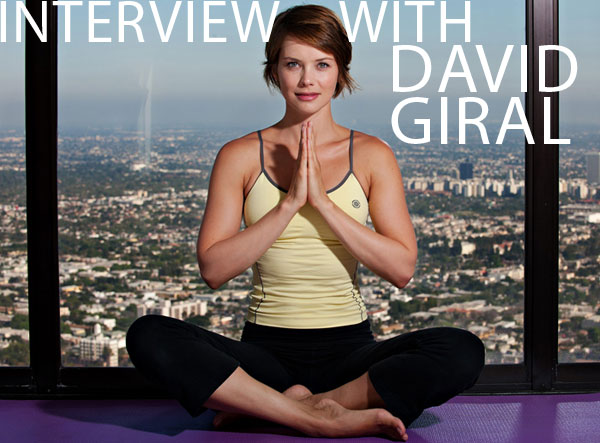
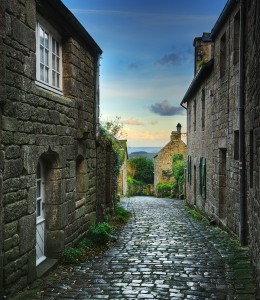
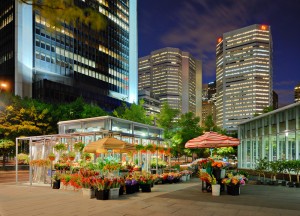
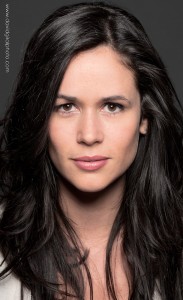
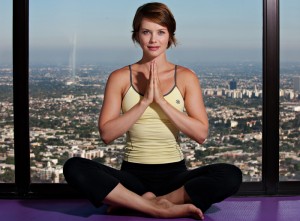
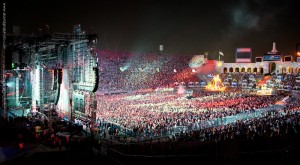
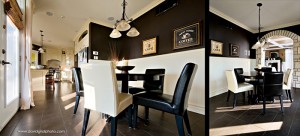
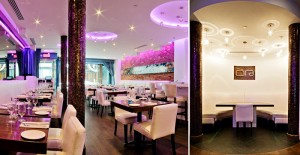

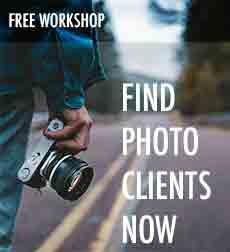
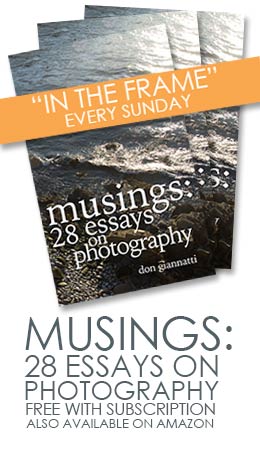

David, thanks so much for sharing your awesome work with us. This interview really hit home for me as I aksi just left my former life of the IT Consulting world to pursue my photography full-time in May 2010! It was inspiring to hear your story and I wish you all the best in your future endeavors!
Best,
John
So lessee…
I stated: “…So today we aren’t going to worry about that $400 wedding (with CD and proofs) that happened yesterday, or the IT guy who shoots for the local ice-cream parlor for trade (Mmmm – Rocky Road). Who cares anyway.”
Yes, I dismissed him because he is shooting for ice cream. I don’t care about that… and in the context of the previous post I was also referring to him in the context that OTHER people worry about him. I do not care about that stuff in relationship to it ‘destroying professional photography” as others seem to be so concerned about.
“And the difference is…?”
You are kidding, right?
The difference is that David is now a professional and has been steadily building a career. I do not see ANY correlation between ‘shooting weekend gigs’ for fun and building a career. Even if it happens post transition, the career choice is the point of the interview.
I am profiling someone who shot what he shot and built a career.
What in my statement about the ice cream shooter indicated anything about his career choices, how and why he was doing it, what plans he had for the ice cream shots, whether he was planning on moving into food shooting or even that it was somehow wrong for him to do that. I perfectly stated that it didn’t matter.
Quality of work.
Discipline.
Marketing.
Meeting Challenges.
Business Sense.
You seem to indicate that I was somehow disparaging to the IT guy shooting ice cream stores for ice cream. I was not… read it again. I don’t care about that stuff.
But when someone breaks from that and starts to build a career in photography – and is successful in that transition – that is interesting.
Guy shooting ice cream is an IT guy shooting for trade. Nope, not going to do an interview with him.
Guy who used to shoot ice cream parlors for trade, and now is shooting food for magazines… yeah, him I would interview.
Are you telling me you see no difference there?
Don, I DO see the difference. However, it’s easy for me to see the difference because I’m looking at it from the outside. It can be a difficult judgment for photographers to make for themselves, because we’re all emotionally involved (both positively and negatively) in our own work.
What I was asking for in my comment (which doesn’t appear in the thread) was more detail on HOW photographers negotiate these successful transitions. You’ve offered insightful posts in the past about photographers who are NOT ready to “go pro” (let’s call that Point A) and this profile, for example, gives us a good view of someone who HAS successfully “gone pro” (let’s call that Point B.)
I guess I have an ongoing interest in hearing more detail about how photographers successfully navigate the journey FROM Point A to Point B… and I suspect a lot of other readers might be likewise interested.
That’s all. Sorry if the original comment sounded snarky. In my other life I get paid to be snarky on a per-snark basis, so it’s hard to get out of the habit.
I am going to ask David to pop in here for some insights.
And I will be doing a rather on-going series with a friend of mine, Jan Klier who gave up a terribly sought after career with a huge company to make the jump – starting this Monday.
We will look back at his last year and what he has done to get him to this point, and then do a monthly checkin and checkup with him. This will be accompanied by audio and images.
Hi Don & David,
Excellent interview. It’s interesting that I have a similar background to you, David! I majored in GeoPhysics but got my degree in Computer Science and have been an IT Consultant (and employee) for 25 years! I recently got back into photography and find your story inspirational!
Do you see any parallels between IT Consulting & Photography as a business, especially in people skills?
Also, I love Montréal! I did some work there in 2001 for Emergis and loved it! Hope to get back to see the GP one of these days.
Danté
To reply to the main questions as why I did the transition to being a full time photographer, I don’t see it like this.
For me, I see it as switching from being an employee in a firm to being in charge of my own business and my financial reality.
I’ve switched because I felt I had reached my threshold as an employee so the last year as an IT consultant, I’ve worked my ass off to develop my network, new skills, a decent portrait portfolio (before that Lighting Essentials workshop, I had done 2 portfolio shoots). To be honest, when I bought first my digital camera in 2004, I had in mind of eventually switching to photography full time.
I’ve heard that story many times from people who switched to photography full time because they liked the artistic side and it’d be fun and then realized that in the end this artistic side is only 20-30% of the time you spend and the rest is the business.
When I switched to full time, I knew the key elements for being a photographer were:
– to be able to handle the business side (processes, negotiation, billing, pricing): this also means not contacting big firms as long as I don’t feel I am able to make the perfect pitch to them)
– to be able to market myself and figure out my niches
– to be able to have revenues coming from various sources for more stability
– to be efficient (having worked in test automation for 5 years really helps as creating actions is key to have the most efficient workflow)
– knowing I could satisfy my clients needs EVERY single time
There are a LOT of talented photographers out there… what makes the difference between successful and unsuccessful ones is their ability to market themselves… and deliver.
Thanks for that, David.
I appreciate it so much.
David’s last comment is spot on.
The first question if thinking about going pro should not be whether you would like taking images 7/24, but whether you are truly ready to run your own business.
The good thing is that those that had prior careers often had a chance to develop these skills and the ability to answer that question more accurately then someone just out of school.